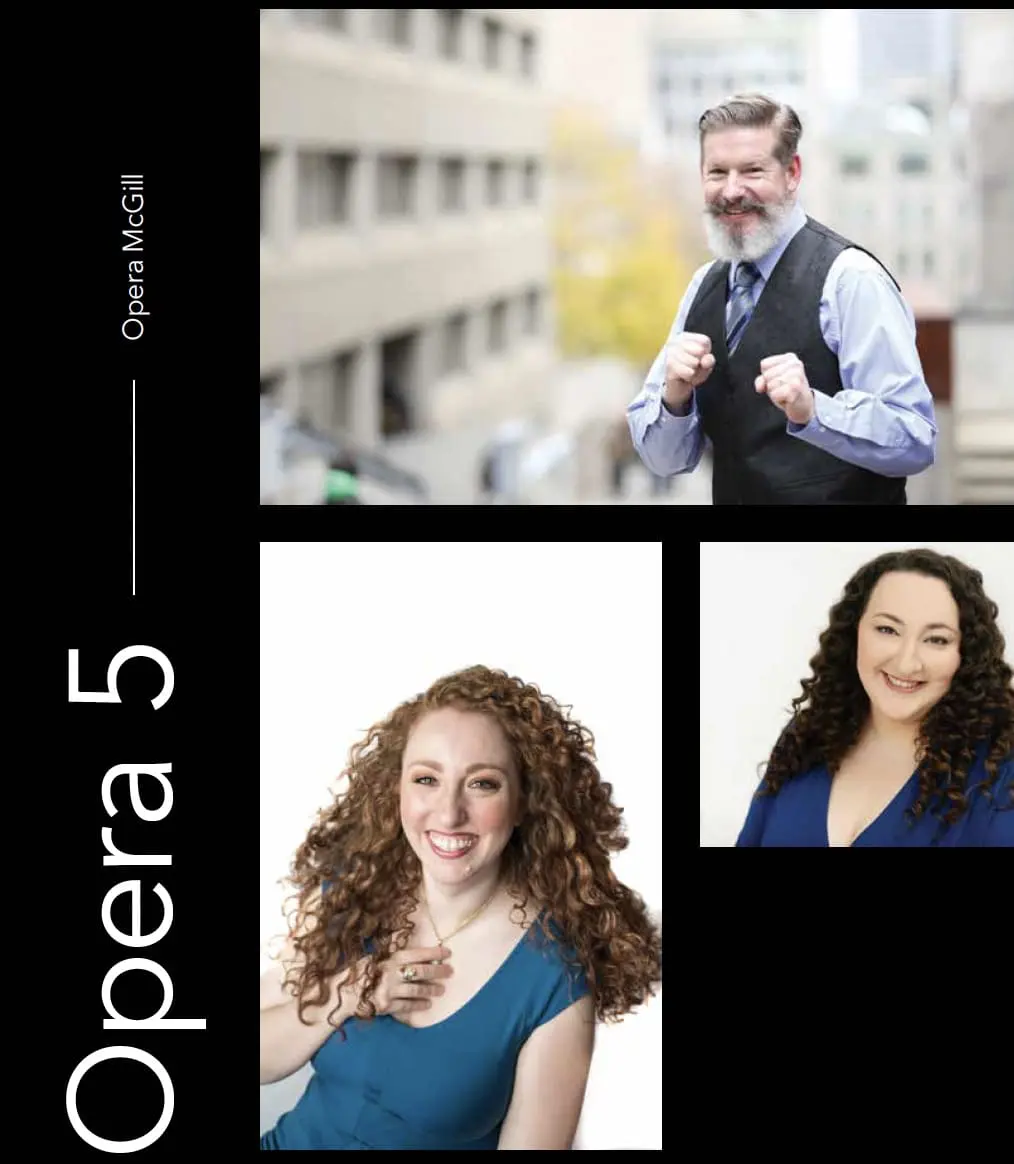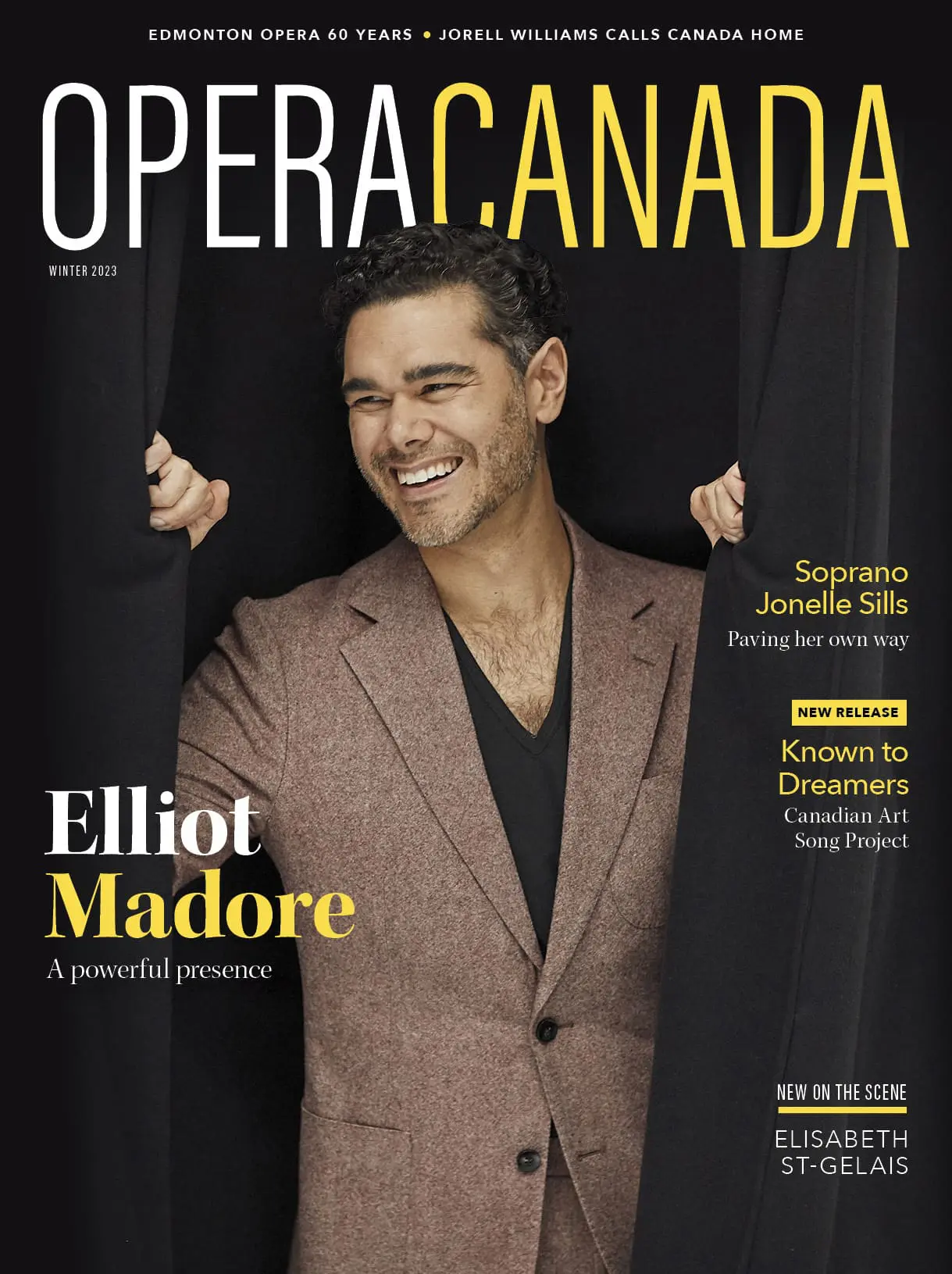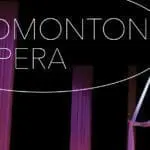SUBSCRIBE TO DIGITAL AND/OR PRINT MAGAZINE
*this text originally appeared in our
2023 winter print issue
The Opera 5 – Opera McGill Internship Program, created by Rachel Krehm, Jaclyn Grossman, and Patrick Hansen is making big waves.
While opera companies reduce both the number of productions and performances per season, here instead are leaders with a vision of collaboration, teaching tools with which to earn a living in the face of these realities…at music school! So-called bohemian values of high-minded, artistic wealth resigned to material poverty are replaced compassionately with marketable skills and higher standards of living. This pilot project develops agile artists able to transition to any number of roles, within or without the performing arts.
What began in 2020-21 as an entrepreneurship course at Opera McGill taught by Krehm (General Director at Opera 5 and real estate executive), in which students learned the financial, legal, administrative and artistic realities of forming a company, has evolved into an internship program providing tangible links between educational institutions and professional opera companies.
Narrowing the divide between academia and professional life begins, in this brave new world, with a four-week, Canadian Actors’ Equity contract for $3,500. Six Opera McGill students have been selected for artistic, administrative and production training during rehearsals and performances of Opera 5’s The Turn of the Screw in June 2024, including:
• Cover (understudy) role assignment in the production
• Structured mentorship by the main cast
• Full-orchestra, intern performance on June 13, 2024
• Secondary assignment in administration, production, and/or design. Examples include marketing, social media, production mentorship, assistant stage direction, assistant stage management and costume or set design
• Gala performance and post-performance networking with industry leaders
And what does ‘selected’ entail, you ask? These pages have offered solutions for opera’s inefficient audition system, and now a pilot program, run by artists currently navigating within this system, offers many more. Opera McGill students attended seminars on job applications, cover letters, resumes (performance versus standard CV) and auditioning best practices. They then participated in a rigorous selection process of applications, job interviews and auditions. Holistic preparation. Life experience. Marketable skills. And practice.
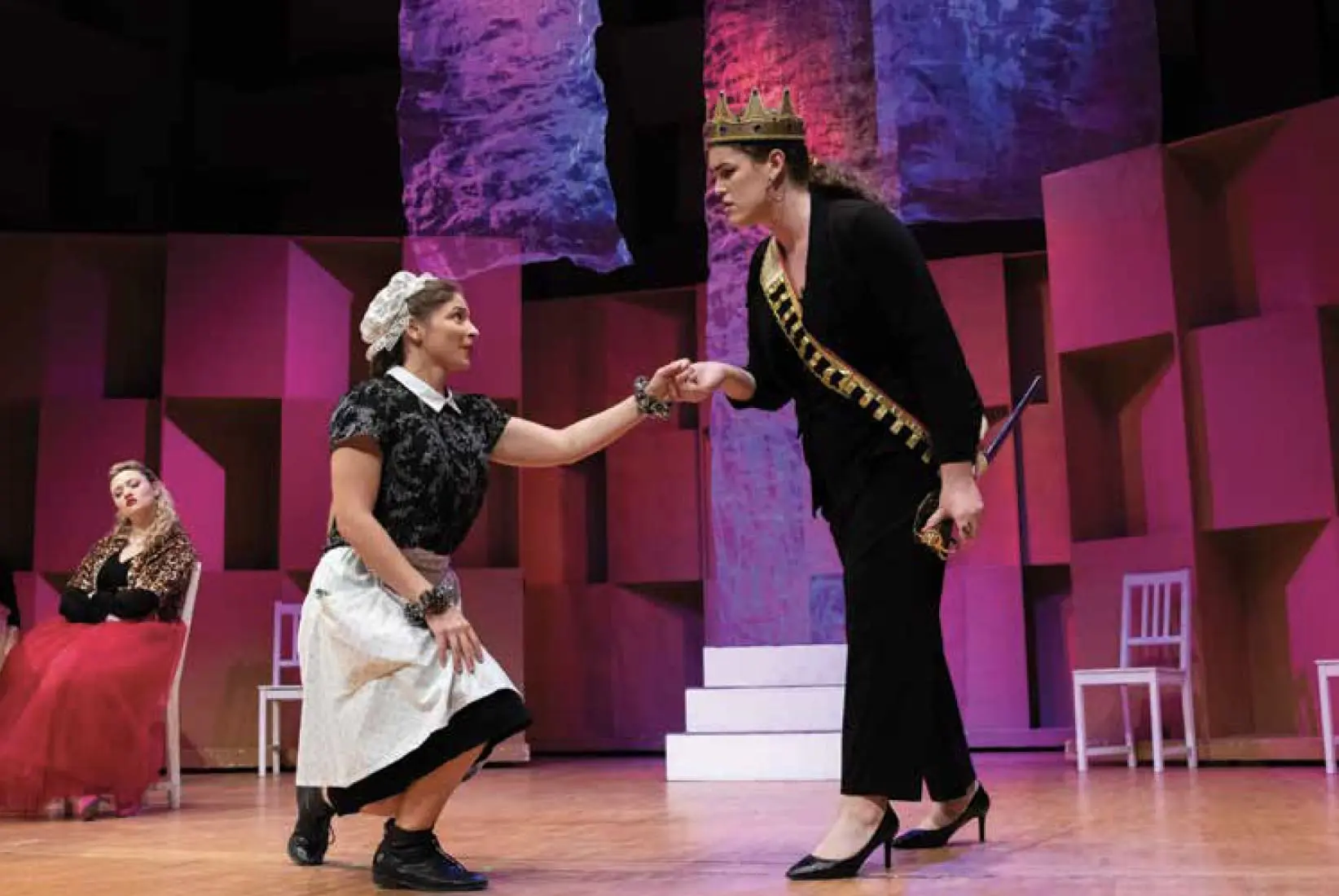
©Stephanie Sedlbauer
Mezzo-soprano Mala Weissberg (Cenerentola) and tenor Patricia Yates (Prince Ramiro) in the program‘s latest production La Cenerentola
Interns reap the benefits of structured mentorship in administration and entrepreneurial skills by producers, conductors, directors and administrators who are problem solving and fundraising and marketing now. Interns work closely with both the professional cast and the production team, and this one-ups even the pros: currently, there is precious little interaction between cast and production team and these silos limit creative solutions and information exchange rather than fostering transparency and a shared sense of purpose.
Meet the Interns: Here is a diverse array of talent, ranging from second-year undergraduates to second-year masters students, and this age mix is innovative in itself, de-siloing narrow degree streams. The cohort includes an all-female cast to cover and perform in The Turn of the Screw, where director Amanda Smith’s concept challenges conventional gender norms, placing talent above voice type and a host of other casting cul-de-sacs.
Embedded in the school year curriculum and leading up to the internship period, Opera 5 and Opera McGill will lead further seminars on industry insights and expectations, administrative skills and role preparation. Artists equipped with the skills and confidence to innovate become marketable assets who can distinguish themselves in a very overcrowded field. Patrick Hansen, Music Director at Opera McGill, exclaims: “This is a GAME CHANGER for the industry. We need to let go of the master/apprentice mentality, and this is a paid internship, just like in any other field where the students are learning vital skill sets to better prepare them for the reality of working life. The future is collaboration and community engagement beyond academia’s ivory towers. Opera companies must look at their local opera training programs and see them, really see them, as potential resources for deeper interactions, to the benefit of all stakeholders. This pilot is poised to serve as a model for companies across North America, and from Krehm’s vantage, “training artists who have skills to sustain themselves while continuing to grow artistic careers is vital to the future health of the opera sector.”
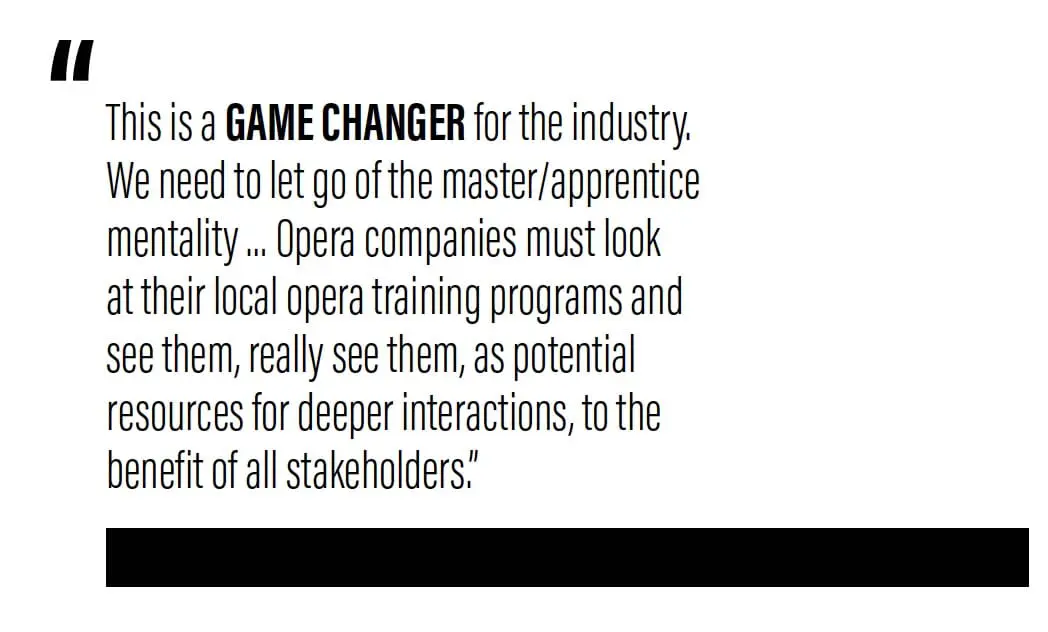
• 90% of participants felt they had a better understanding of how to manage conflict
• 83.8% of participants were more likely to volunteer in their communities
• 80.6% of participants had a better understanding of mental health and self-care
Finally, an invitation for Canada’s major companies to recognize and value whole artists, with far more to offer than a solid vocal technique. These interns will run our institutions someday, if I have anything to do with it. Programs such as this and Tapestry Opera’s nation-wide partnership program, Women in Musical Leadership (on whose committee I proudly serve) are building the scaffolding for better leaders than frankly, are currently on offer. Who was it who said, “we get the leaders we deserve”? Well, Canada, there are very deserving ideas and artists coming up, and the future sounds decidedly major.

